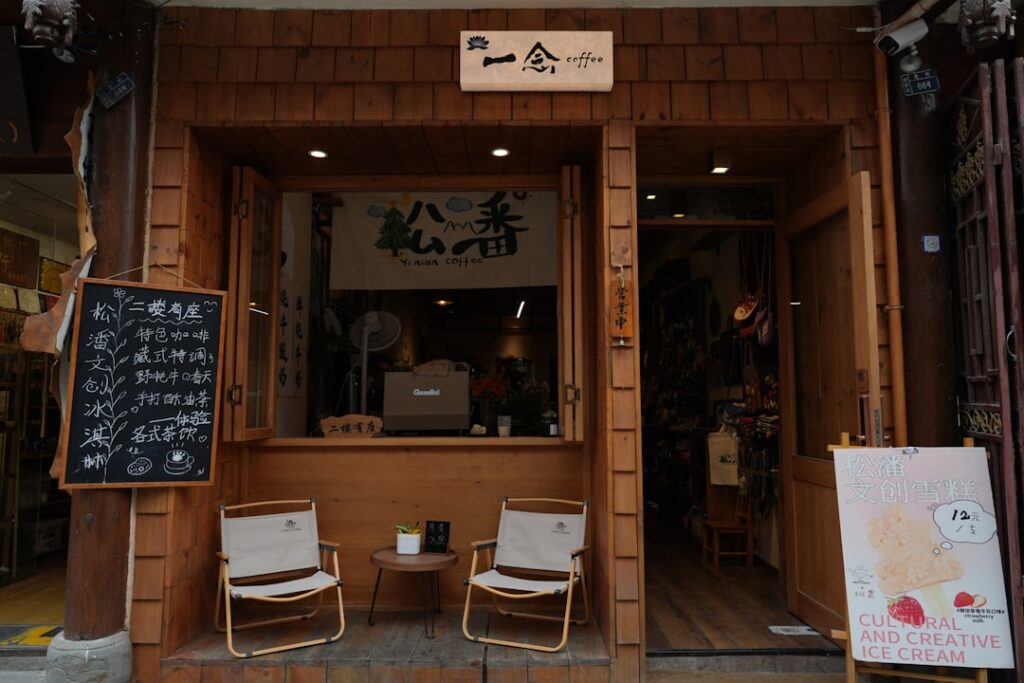Have you ever wanted to taste the heart of Japan while sipping sake in a space that echoes centuries of tradition? Deep in the Japanese countryside, beyond the usual travel guides, a new movement is quietly creating a buzz: “Kura Cafés.” These unique establishments transform historic sake breweries into ambient cafés, blending the beauty of old-world architecture, the charm of local community, and the art of food-and-sake pairing. Dive into the secret world of Kura Cafés, where hidden flavors—and stories—await discovery by those who venture off the beaten path.
What is a “Kura Café”? The Evolution of Traditional Sake Breweries into Modern Cafés
A “Kura” in Japanese means “warehouse,” but in the context of Japan’s brewing culture, it refers to the traditional sake breweries often found tucked away in scenic countryside towns. Recently, a fresh wave of local entrepreneurs and young brewers have given new life to these beautifully preserved kura by turning them into atmospheric cafés. Here, the exposed timber beams, clay walls, and antique sake barrels form the backdrop to a new kind of gathering space. The result? A cultural crossroads where history, hospitality, and innovation meet.
This movement isn’t just about preserving historic buildings—it’s about revitalizing communities, sharing local flavors, and introducing new generations to the art of sake appreciation. Step inside a Kura Café, and you’ll experience a harmonious blend of tradition and modernity, with every sip telling a story.
Local’s Favorites: 3 Hidden Kura Cafés Worth the Journey
While famous breweries in Kyoto or Niigata attract travelers, true adventurers seek out Kura Cafés beloved by locals and nestled in small towns you might never find on a map. Here are three remarkable examples where authentic ambiance and warm hospitality await:
-
Sakuragawa Kura Café (Ibaraki Prefecture):
Located in a rural valley framed by rice fields, this café uses its original 19th-century kura structure. Guests are greeted by the aroma of fermenting rice and can relax in sunlit tatami rooms while sampling rare, locally-crafted sake. -
Yuru Kura Café (Ehime Prefecture):
Set inside a 200-year-old sake warehouse on Shikoku Island, Yuru Kura combines minimalist Japanese décor with contemporary influences. Seasonal pop-up events pair sake with local delicacies—think citrus-infused sweets and grilled river fish. -
Kurashiki Story Café (Okayama Prefecture):
Tucked in a peaceful canal district, this kura-turned-café prides itself on its artistic collaborations. Local potters, florists, and writers often host workshops, making every visit a multisensory experience.
Finding these cafés often requires venturing beyond train lines and tourist routes—but for the curious traveler, the reward is a rare, deeply personal encounter with Japan’s living traditions.
Signature Menus: Sake and Local Flavors in Perfect Harmony
Kura Cafés are not only about the ambiance—they’re a culinary destination in their own right, offering a distinct approach to food and drink that highlights the terroir of local producers. Expertly crafted sake from on-site or neighboring breweries is paired with seasonal bento platters featuring mountain vegetables, miso-marinated river fish, and house-made pickles.
Signature offerings might include:
- Sake Flight Tasting: Three to five varieties of sake—ranging from crisp junmai to fragrant daiginjo—carefully matched to accompany small plates.
- Local Produce Pairings: Think freshly harvested yuba, homemade tofu, or citrus fruits unique to the region, all designed to enhance the subtle notes in the sake.
- Sweets and Sake: Rice flour cakes and mochi infused with sake kasu (the lees left after brewing), providing a gentle, sweet finish.
Menus change with the seasons, reinforcing an intimate connection to the landscape and community surrounding each kura.
Community Revitalization: How Kura Cafés Inspire Exchange and Rural Renaissance
Beyond delighting visitors, Kura Cafés have become catalysts for regional renewal. By attracting visitors to lesser-known areas, they boost local economies, encourage intergenerational storytelling, and bridge the gap between rural tradition and contemporary lifestyles. Many café owners collaborate with artists, farmers, and brewers, offering workshops, markets, and seasonal festivals that connect neighbors and newcomers.
This spirit of cooperation not only preserves unique regional identities but also makes rural life more sustainable. For travelers, it means the chance to witness—firsthand—the ongoing evolution of Japan’s countryside, where innovation grows from deep roots.
Travel Tips: Making the Most of Your Kura Café Adventure
Ready to embark on your own Kura Café pilgrimage? Here are a few tips to ensure you experience the best these hidden gems have to offer:
- Plan Ahead: Many Kura Cafés are family-run with limited hours. It’s wise to check opening times and make reservations, especially on weekends or during special events.
- Travel Etiquette: Respect the peaceful atmosphere—most kura are quiet spaces, and shoes are often removed at the entrance. Photography may be restricted in some areas.
- Transportation: Rural locations may require car rental or local taxis, but public buses—while rare—can offer scenic journeys through the countryside.
- Embrace Local Hospitality: Don’t hesitate to chat with café owners or fellow guests. Many are thrilled to share the story behind each kura and their recommendations for local sights or artisanal products.
Kura Cafés invite you to slow down and savor the moment—a fitting reminder that, in Japan, some of the best experiences are found far from the crowds.







